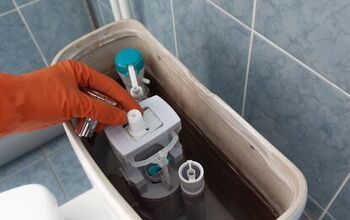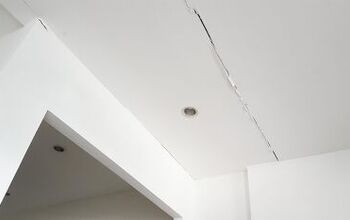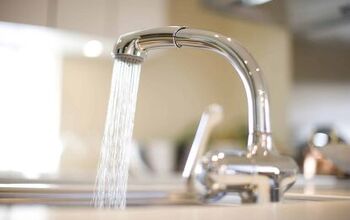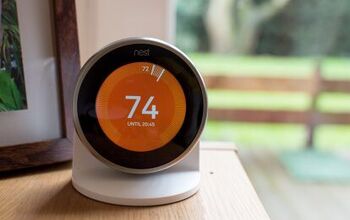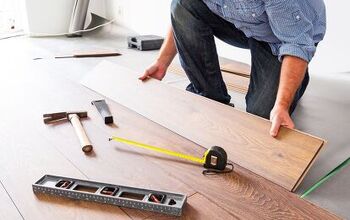RV Carbon Monoxide Detector Keeps Going Off? (Fix It Now!)

When you are in your RV, you want to be able to enjoy your time. Any disturbances can make things stressful and even require a fix. So, when you hear that “chirp, chirp, chirp” of the carbon monoxide detector, it can cause a bit of stress.
It is a sound that no one wants to have to deal with. The key is identifying why your carbon monoxide detector is going off. There are three likely reasons: the batteries are low, the detector is at the end of its lifespan, or there is actual carbon dioxide in the area.
Do You Need Indoor Air Quality Testing?
Get free, zero-commitment quotes from pro contractors near you.

What is Carbon Monoxide?
There is some confusion between carbon dioxide and carbon monoxide. Dioxide is the air that we breathe out. It is totally normal unless you are in a small, condensed space where the carbon dioxide replaces the oxygen.
Carbon monoxide is a colorless, odorless, tasteless gas that is poisonous. It is the result of burning materials that have carbon. That typically means gasoline, natural gas, propane, coal, or kerosene wood.
Why is Carbon Monoxide Dangers?
Let’s make one thing clear off the bat: carbon monoxide is dangerous anywhere, not just in your RV. It is dangerous because it replaces the oxygen cells in your body and does so at an accelerated rate.
So, when you breathe in carbon monoxide, it will replace the oxygen in your body This leads to carbon monoxide poisoning in your body. It is called “the silent killer” because it is odorless, colorless, and tasteless. So, you could have a deadly buildup of carbon monoxide in your RV without even knowing it.
The signs of carbon monoxide (CO) poisoning include headache, vomiting, dizziness, shortness of breath, or even flu-like symptoms. If you feel any of these symptoms, get out into open air quickly. Should the symptoms persist, see a medical professional immediately.
Why Your RV Carbon Monoxide Detector Keeps Going Off
Thankfully, there is a safety mechanism in place that can help you combat carbon monoxide. That would be your carbon monoxide detector. It is important to make sure that your detector works and that it has batteries in it at all times.
There are three common reasons why your carbon monoxide detector goes off. It is either because the detector’s batteries are low, the detector is at its end of life, or there is an actual presence of carbon monoxide.
The Presence of Carbon Monoxide
The most obvious reason why your carbon monoxide detector keeps going off is that it detects carbon monoxide. You should never, ever just assume that your detector is faulty or running low on batteries.
Always assume that there is a presence of carbon monoxide detected when your detector goes off. The beeping indicates that carbon monoxide presence is above the minimum levels.
Make sure that you get anyone in the RV out as soon as possible. Open up the windows to circulate fresh air in. Most of the time, this should bring CO levels back to normal. Then turn off any of the gas-using appliances, including generators, in the RV. Finally, have a professional come out to take a look at the problem.
Carbon Monoxide Detector is at its End of Life
Perhaps you have had a professional come out and there is no source of a carbon monoxide leak. So, why is your detector going off? The first reason could be that the unit itself is at its end of life.
When it is at end of life, you will hear a chirping noise every 30 seconds or so. The pitch of the chirp may be getting softer and lower as it goes, whereas a regular chirp is much louder and sharp.
The average carbon monoxide detector can go anywhere from 5 to 10 years. Replacing the battery is not going to stop the beep. If you have a digital CO alarm, then you might see a display like “END”, “EOL”, or “ERR”. That indicates that the detector is at the end of life.
Carbon Monoxide Detector is Low on Batteries
That “chirp-chirp” noise that can be such an annoyance is often a sign that the batteries are low. It seems like this always happens in the middle of the night and it is enough to drive anyone nuts.
When the carbon monoxide detector is low, it generally chirps once or twice in a 30 second period. Listen to the strength and frequency of the chirps. Some misidentify the chirps as the end of life rather than battery power.
Make sure that you replace the batteries as soon as you hear the chirping. If you don’t, you run the risk of your carbon monoxide detector dying, leaving you and your family at risk. Never, ever present that risk.
What RV Appliances Emit Carbon Monoxide?
There is a misconception that you cannot be exposed to carbon monoxide when in your camper or RV. Don’t make this mistake. There are several appliances and even fifth wheels that either contain or run on propane or gas. That increases the risk for exposure if there is a leak.
Here are the appliances that you should concern yourself with as far as carbon monoxide emissions:
- Portable generators
- Built-in generators
- Gas ovens or ranges
- Gas-powered heaters
- Gas water heaters
- Portable camp stoves
If any of those are in your RV, then there is a chance that you could be exposed to carbon monoxide.
Test Your Carbon Monoxide Alarm
It cannot be stressed enough how important it is to make sure your carbon monoxide detector is working. Even one night in your RV without a properly working CO detector can be extremely dangerous.
That is why it is important to check your carbon monoxide alarm somewhat frequently. Check it monthly at least to ensure that it is operating properly. For the most part, RV carbon monoxide detectors have a “test” button that signals that the unit is fully functional and operational.
What Does it Cost to Replace a Faulty Carbon Monoxide Detector?
So, you have come to the determination that your old carbon monoxide detector is on its way out. That’s a good thing because at least now you know how to implement a fix. The question then becomes “how much does it cost to replace the old unit?”
The cost of a new carbon monoxide detector for your RV varies based on features. The cheapest ones on the market will run you about $20. The more features you add, including stuff like one-touch testing, can run you as much as $100.
While you might not need a top-of-the-line model, you shouldn’t necessarily cheap out, either. Remember that this is the safety of your family at risk. Go with a unit that is dependable so that you can have the peace of mind that you deserve.
What Happens If You Have Carbon Monoxide Poisoning?
The symptoms of carbon monoxide poisoning are very similar to that of the flu. You may have shortness of breath or dizziness as well. Don’t just write off these symptoms, especially when you stay in an RV.
If getting some fresh air doesn’t make those symptoms dissipate within an hour or two, don’t wait. Call 911 or have someone drive you to the hospital. Carbon monoxide poisoning is serious enough that it could result in death if left unchecked and untreated.
What is the Average Lifespan of an RV Carbon Monoxide Detector?
Just like any other safety mechanism or appliance, the average lifespan is just that: an average. There is a chance that your carbon monoxide detector could come in well below or above that timeline.
That said, the average lifespan for an RV carbon monoxide detector is between 5 and 7 years. With a little bit of care and attention, you can extend that lifespan to as many as 10 years.
The good news is that it is relatively cheap and easy to replace. Don’t drag out replacing your carbon monoxide detector over a little bit of cheapness. Even a $50 cost will keep your family safe in your RV for another 5 to 7 years. Moreover, it will provide the peace of mind that you and your family need.
Do You Need Indoor Air Quality Testing?
Get free, zero-commitment quotes from pro contractors near you.

Related Questions
The carbon monoxide detector in your RV is just one of the safety mechanisms in place. You may find that you have questions relating not to the carbon monoxide detector, but one of the other safety mechanisms. Here are some of the most relevant related questions.
Why is the LP Detector Beeping?You may be using a propane tank as fuel for the various appliances in your RV. That has a separate detector, known as an LP detector. Just like the carbon monoxide detector, it will sometimes constantly beep.
The reasons are very similar to your carbon monoxide detector. It could be a low battery, the detector is at its end of life, or it actually detects a propane leak. The main difference is that it is often part of a larger control panel, so replacing the propane detector is a little more difficult.

Ryan Womeldorf has more than a decade of experience writing. He loves to blog about construction, plumbing, and other home topics. Ryan also loves hockey and a lifelong Buffalo sports fan.
More by Ryan Womeldorf












